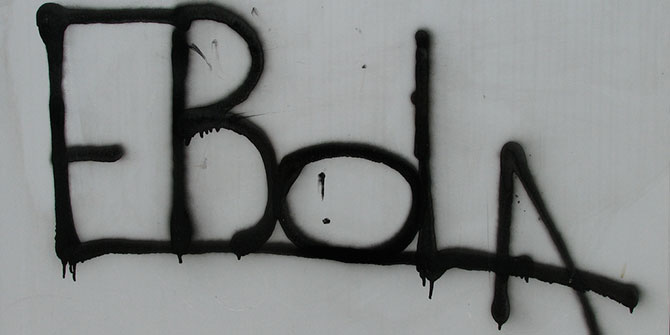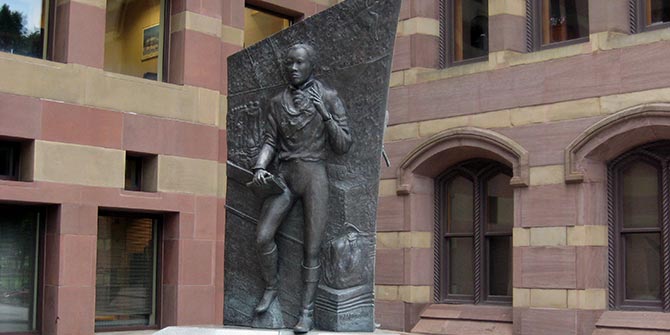In reviewing After Rape: Violence, Justice and Social Harmony in Uganda, Sverker Finnström compares the work of Holly Porter to the pioneering anthropologist Margaret Mead.
Over the last decade or so post-war Acholiland in northern Uganda—from where the Lord’s Resistance Army rebels originated—has been subjected to a massive research intervention. The development leaves me partly puzzled: despite a virtual avalanche of books, articles and human rights reports, I have a nagging doubt that little is said that is not already known. For how long is it ethically sound to continue to produce and reprise research on more or less the same matters? When is the so-called field, including its informants (who, by the way, are real persons), exhausted? This question of research ethics in the field also has epistemological repercussions: what if yet another round of surveys end up only confirming or refuting the presuppositions established prior to coming to the field?
 Such developments in mind, Holly Porter’s After Rape stands out as different: thoughtful and important; a mandatory read. “Rape… is not just violence. It is also sex, in all of its complex variations” (p. 55). By way of this claim, Porter links rape during times of war with rape that takes place regardless of any war, and she finds support from fellow anthropologist Carolyn Nordstrom who argues that what people accept in peace will shape what they will tolerate in war. “Rape as sexual violence needs theories of both violence and sex.” (p. 56)
Such developments in mind, Holly Porter’s After Rape stands out as different: thoughtful and important; a mandatory read. “Rape… is not just violence. It is also sex, in all of its complex variations” (p. 55). By way of this claim, Porter links rape during times of war with rape that takes place regardless of any war, and she finds support from fellow anthropologist Carolyn Nordstrom who argues that what people accept in peace will shape what they will tolerate in war. “Rape as sexual violence needs theories of both violence and sex.” (p. 56)
Porter’s work made me think of anthropologist Margaret Mead. When the discipline’s ethnographic methods are in beautiful sync with the creativity and sensitivity of a particular fieldworker, anthropology can produce unique and groundbreaking stuff. Mead, when a young female fieldworker, produced exceptional and pioneer research on young Samoan women’s agency and sexuality. Porter’s study is a remarkable parallel. Two dimensions stand out. First, she anchors her arguments in the existing literature, both past and present, and still she advances previous analyses (mine included) in new, critical, and innovative ways. Second, Porter presents excellent (even if painful) ethnographic material that genuinely contributes to the body of research on Acholiland in particular and on the theme of rape in general. “Living here, really being here,” Porter notes as she describes her approach as a fieldworker in postwar Acholiland, “has given this work its shape. The stories of rape and what happens afterwards occur within an Acholi rhythm of life, in which I engage” (pp. 22-23). Indeed, her ethnography has the true anthropological potential of comparison and cultural critique, to recall again the legacy of Mead’s classic study. Porter quotes not Mead but Clifford Geertz: “It may be in the cultural particularities of people—in their oddities—that some of the most instructive revelations of what it is to be generically human are to be found.” (p. 227)
Dwelling extensively on the concept of social harmony, which includes an assessment of Acholi views on male and female sexuality in relation to marriage, parenting, bridewealth and kinship ideologies, Porter shows the way women experience rape and its consequences are social and cosmological. Any redress, as Porter’s informants are painfully aware of, must address the wider context. The ultimate goal will be to restore social harmony, and this will not necessarily acknowledge the agency and wishes of the raped women nor the agendas of outside intervening agencies such as the Ugandan state or the International Criminal Court. Integral to Porter’s argument is a penetrating discussion on wartime and post-war justice, and the lack thereof. The argument is best summarised by Porter herself: “The book illustrates the centrality of two integral aspects of lived Acholi reality: There is a profound value of social harmony, and a deep distrust of higher authorities to dispense justice” (p. 12, italics in original, repeated on p. 133).
Again, After Rape is an important read. And even if the read is harrowing the stories are superbly contextualised. A young woman summarizes a widespread idea of “love fight” among the Acholi that also informs Porter’s analysis. “If you don’t resist,” the woman says with reference to men’s sexual advances, “they will say that you are an easy girl. So, according to me boys should force girls so that they will know that we are good girls” (p. 121). To return one more time to the legacy of Mead’s Samoa study, my only wish is for Porter to carry out some further research: are there possibly other sides to Acholi sexualities than those focused upon in this book? Are there ways in which young women and men explore their sexualities and desires outside the (heterosexual) norm of women as passive, unwilling and resisting; and of men, with biological “needs” that must be satisfied, as active and enforcing? Porter hints that there are…
This review was first published in African Studies Quarterly.
After Rape: Violence, Justice, and Social Harmony in Uganda. Holly Porter. International African Institute and Cambridge University Press. 2017.
Sverker Finnström is an Associate Professor in Cultural Anthropology at Uppsala University.
The views expressed in this post are those of the author and in no way reflect those of the Africa at LSE blog, the Firoz Lalji Centre for Africa or the London School of Economics and Political Science.





